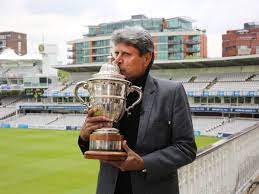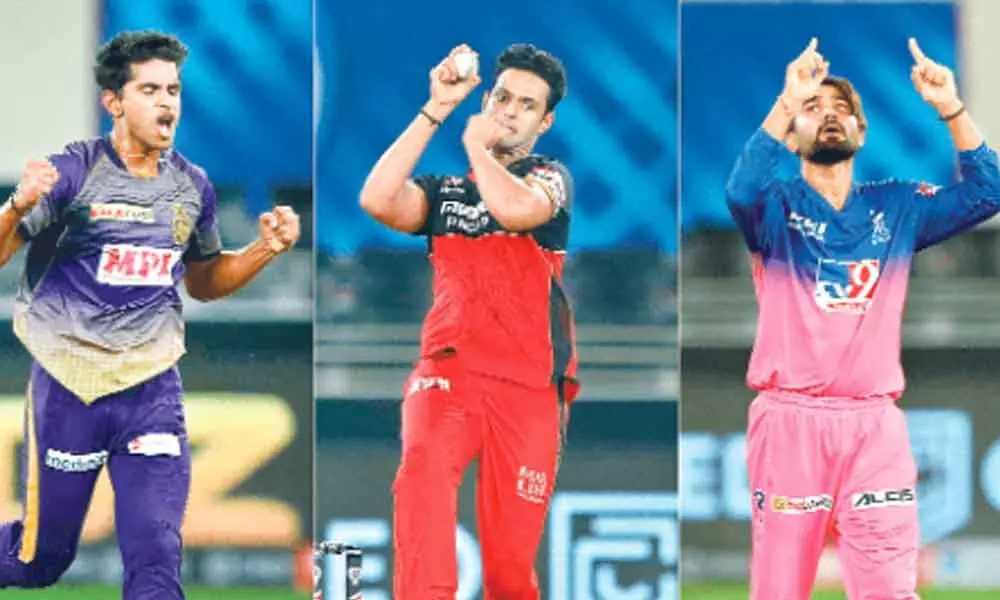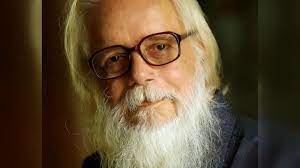The picture of the Indian captain holding the trophy, team aloft behind, at the balcony of the Lord’s cricket ground must be still afresh in the minds of cricket enthusiasts. The 38th anniversary of this famous win is being celebrated this year.
June 25, 1983, will always be remembered as one of the India’s greatest moments. It was the day when the Indian cricket team won Prudential Cup (name of the one day cricket world cup that year).
The picture of the Indian captain holding the trophy, team aloft behind, at the balcony of the Lord’s cricket ground must be still afresh in the minds of cricket enthusiasts. The 38th anniversary of this famous win is being celebrated this year.
Leading the winning pack was Kapil Dev, who without doubt has the distinction of becoming the best all-rounder of Indian cricket (as the data suggests).
He was a far better batsman than his record shows. His 175 runs against Zimbabwe in the semi-final of the 1983 world cup are still considered the best, chasing a score by many stalwarts of the game, including the great Sunil Gavaskar.
He was a far better batsman than his record shows. His 175 runs against Zimbabwe in the semi-final of the 1983 world cup are still considered the best, chasing a score by many stalwarts of the game, including the great Sunil Gavaskar
He was a great athlete, and his catch of Vivian Richards in the finals, running backwards, is proof of his agility.
This catch changed the course of the game because Richards then was treated unstoppable.
Kapil’s discipline towards the game is also unmatchable — he is only among the five bowlers in international cricket who never bowled a no-ball in test cricket, a game that started way back in the 19th century.
And Kapil was a great team leader, as proven by the World Cup win in 1983 — odds were against India. Nobody had ever imagined India going past the semi-final stage-even; the playing eleven had not imagined this glorious victory.
Even in the finals, when India got out to a meagre total of 183 against the invincible West Indies, everybody predicted that this would be a cake-walk for West Indies. Dev’s communication to the team was apparent—to win, opponents need to score at least 183.
Much has already been discussed about this famous win and the heroics of the team. But there are few other contributions of Kapil Dev to the Indian cricket team in general and to the cricket as whole, which has generally not been discussed.
TODAY, the BCCI is considered the wealthiest and most powerful cricket body, but this was not the case before this win. In fact, in comparison to remuneration received by current team players, what the players were getting then was peanuts.
This win brought many sponsors to the BCCI and attracted many youngsters to the game. Sachin Tendulkar had once said that the 1983 win motivated him a lot to be a cricketer. This cricket crazy nation was now a cricket frenzy nation. Though unofficially, now this was the national game.
This win made this game popular not only in India but also in the sub-continent. What till then was beyond imagination; now, the team from the sub-continent started believing that they can also do it. Later two major teams from the sub-continent, Pakistan and Sri Lanka, also won world cups.
The supremacy of the West Indies, Australia and England in the ODI was over, and all the teams are now considered to be capable of winning the game.
Only last year, New Zealand almost won the cup.
Indian Premium League is a major hit in the twenty-twenty format of the game today. It had benefitted many cricketers financially and has helped shape many careers.
Very few know that this concept in India was first initiated by Kapil Dev, who had thought of the Indian Cricket League way back in 2007. Knowing the game, Kapil Dev was aware that the national team comprises only of some selected players, but there are many who, even having potential, are not able to make it to the team and are forced to live in misery.
Amay Khurasiya, even after scoring tons of runs in domestic cricket, could never be a permanent member of the team and is now even forgotten. There are many such examples, and that is why Kapil Dev thought of ICL. Though BCCI never approved this platform, and ICL was forced to stop operations. But taking a cue from the ICL, only a year later, in 2008 the BCCI started IPL, which instantly became an international hit. Many other countries later began their premier league of T-20.
Though remembered as a great all-rounder, Kapil Dev is not only a player; he is an institution. His contribution to the game is beyond comparison.











